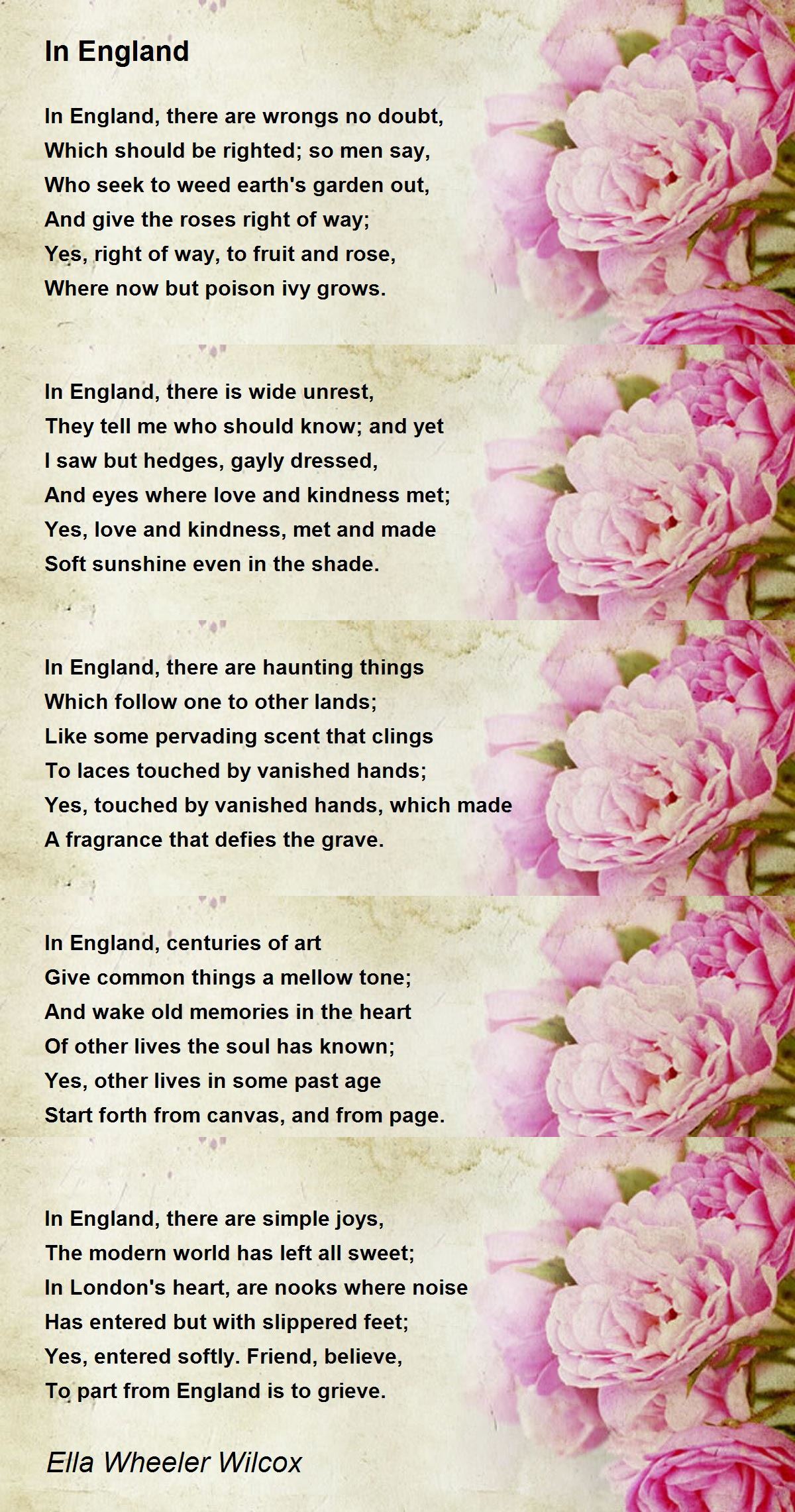
In England In England Poem by Ella Wheeler Wilcox
Romantic poet Percy Bysshe Shelley's "England in 1819" is an expression of political anger and hope. First sent as an untitled addition to a private letter, the sonnet vents Shelley's outrage at the crises plaguing his home country during one of the most chaotic years of its history.
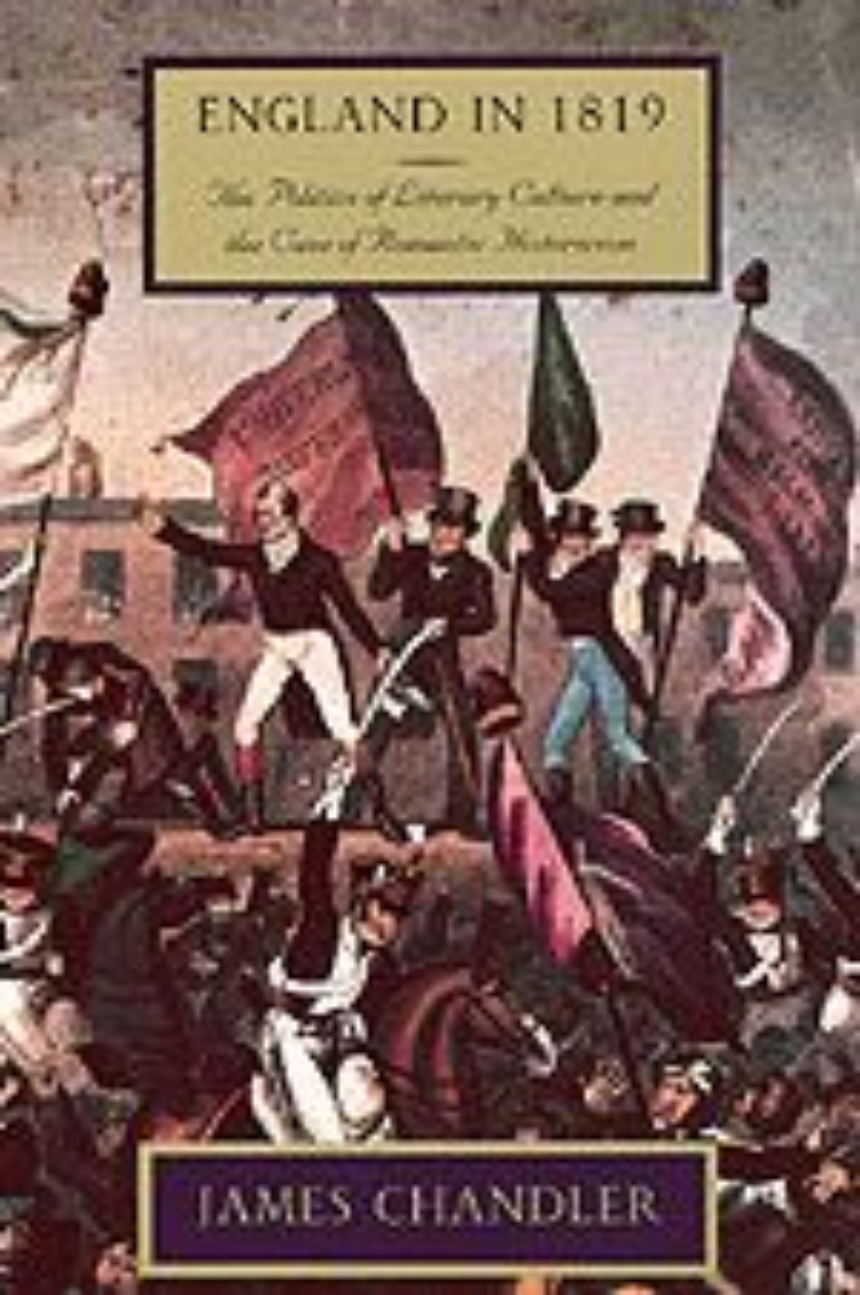
England in 1819 The Politics of Literary Culture and the Case of
'England in 1819' is a sonnet by the second-generation English Romantic poet Percy Bysshe Shelley (1792-1822). It's one of Shelley's most angry and politically direct poems, although a number of the allusions Shelley makes to contemporary events require some analysis and interpretation to be fully understood now, more than two centuries on.
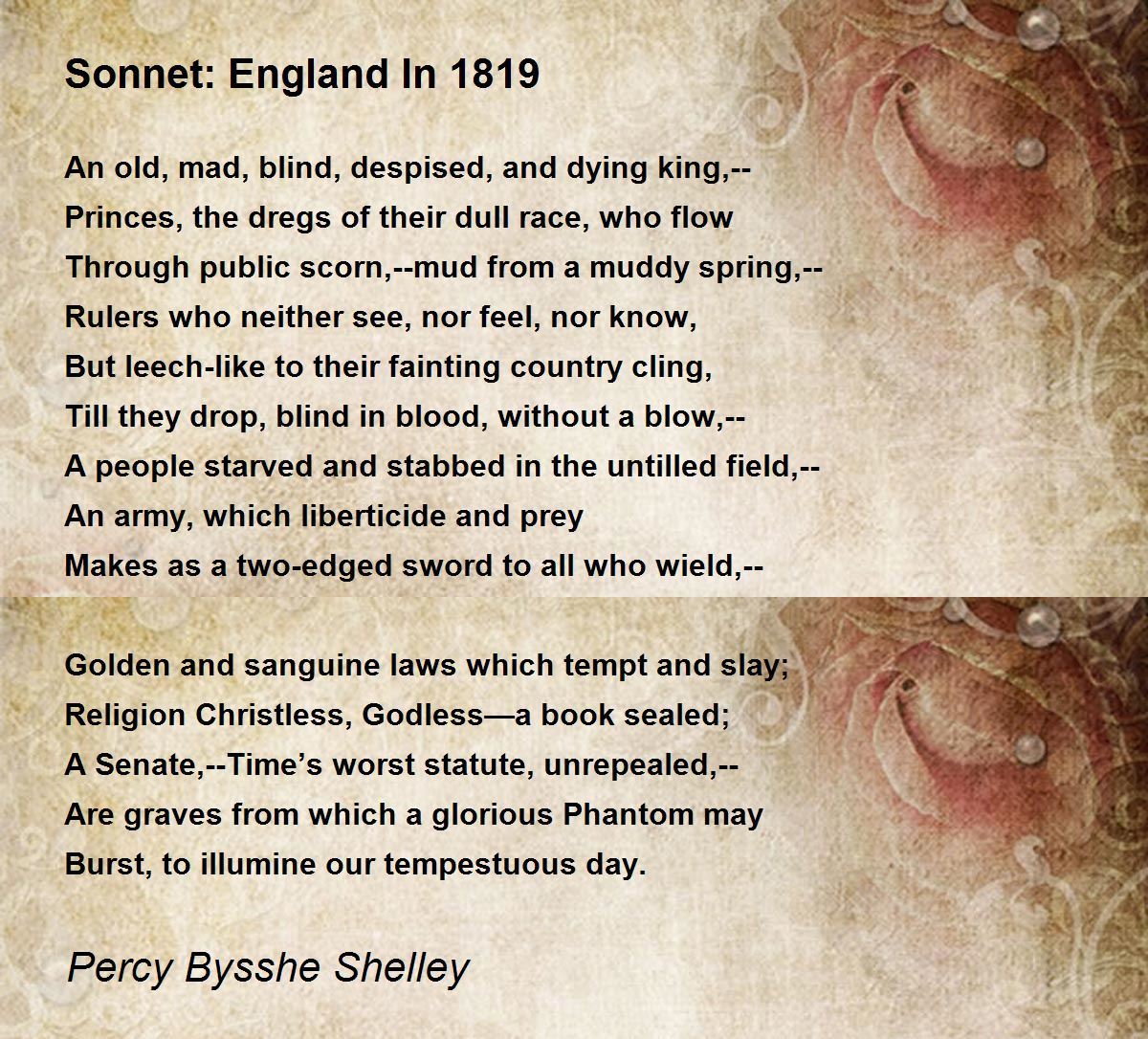
England In 1819 Poem by Percy Bysshe Shelley Poem Hunter
An analysis of the England in 1819 poem by Percy Bysshe Shelley including schema, poetic form, metre, stanzas and plenty more comprehensive statistics.
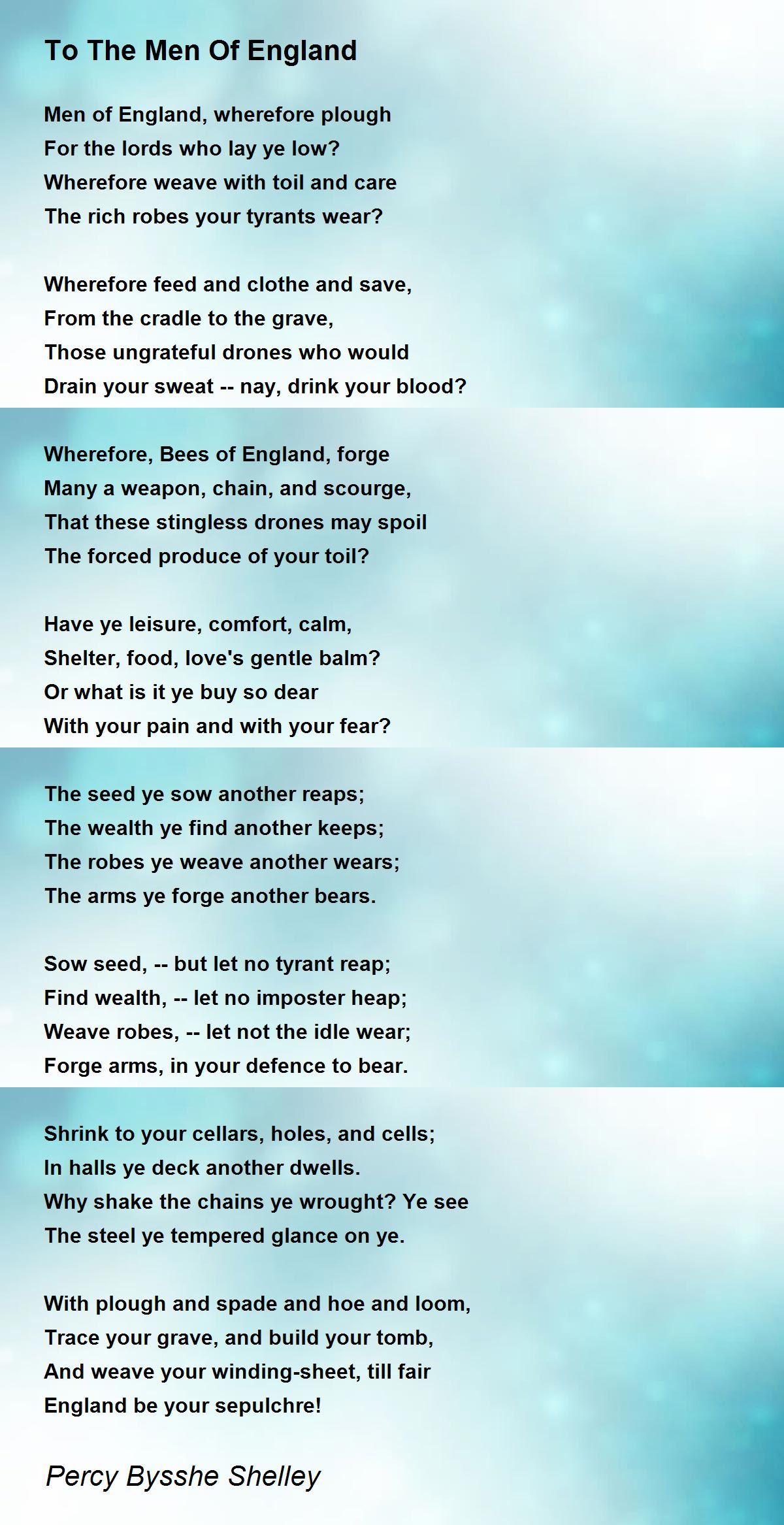
To The Men Of England Poem by Percy Bysshe Shelley Poem Hunter
The speaker describes the state of England in 1819 . The king is "old, mad, blind, despised, and dying." The princes are "the dregs of their dull race," and flow through public scorn like mud, unable to see, feel for, or know their people, clinging like leeches to their country until they "drop, blind in blood, without a blow."

Analysis of England in 1819 by Percy Bysshe Shelley
England in 1819 - An old, mad, blind, despised, and dying king

England in 1819 Poem Summary and Analysis LitCharts
England in 1819 Percy Bysshe Shelley 1792 (Horsham) - 1822 (Lerici) Death Nature Politics War An old, mad, blind, despised, and dying king,-- Princes, the dregs of their dull race, who flow Through public scorn,--mud from a muddy spring,-- Rulers who neither see, nor feel, nor know, But leech-like to their fainting country cling,
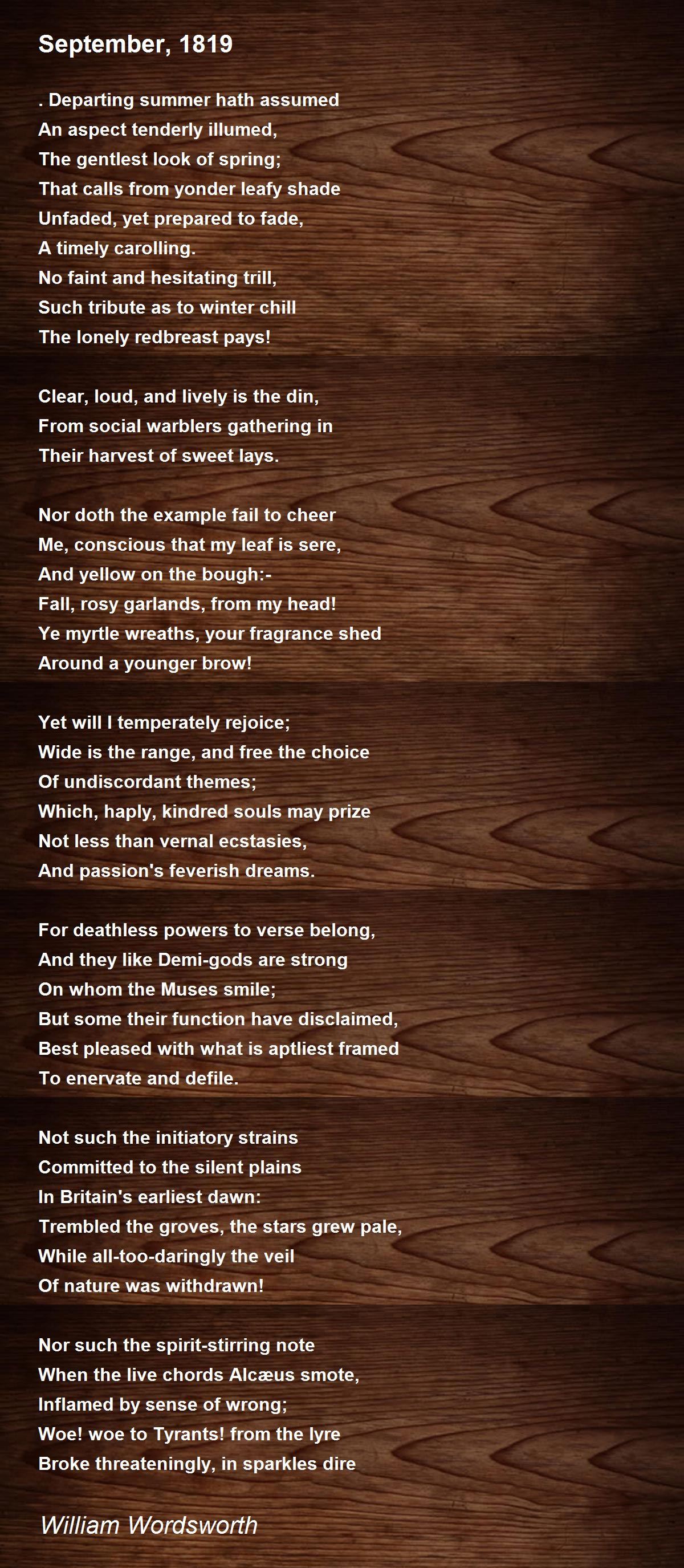
September, 1819 September, 1819 Poem by William Wordsworth
England in 1819 By Percy Bysshe Shelley An old, mad, blind, despised, and dying King; Princes, the dregs of their dull race, who flow Through public scorn,—mud from a muddy spring; Rulers who neither see nor feel nor know, But leechlike to their fainting country cling Till they drop, blind in blood, without a blow.

Percy Bysshe Shelley Poetry Contents — Percy
"Sonnet: England in 1819" is one of Shelley's most vigorous political statements. The language is unusually vivid and emphatic and shows how deeply Shelley's feelings were involved.

England in 1819 Alchetron, The Free Social Encyclopedia
"England in 1819" is a young man's poem (as, of course, are all Shelley's poems, including the magnificent "Mask of Anarchy", written in the same year), and it has its awkward moments. But youth's.
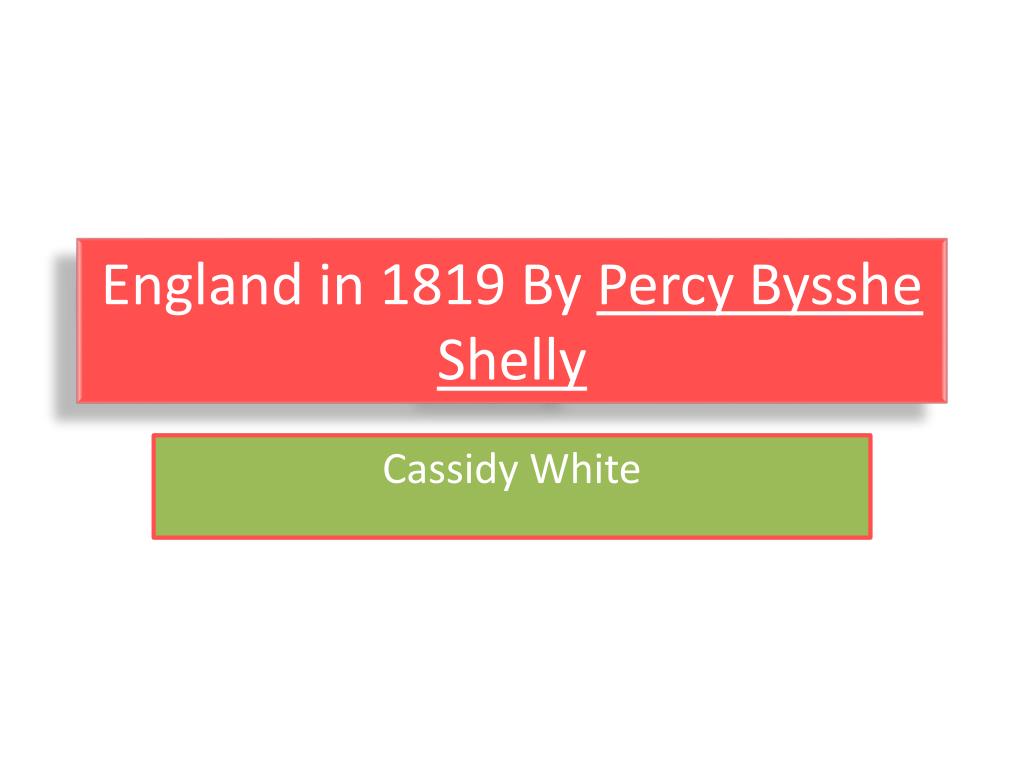
️ Percy bysshe shelley england in 1819. England in 1819. 20190222
The impetus was the so-called Peterloo Massacre, on August 16, 1819, in the industrializing city of Manchester: an armed cavalry, summoned by infuriated local magistrates, charged with sabers drawn into a crowd of 60,000 peaceful demonstrators, murdering at least 10 and wounding hundreds more.

😂 England in 1819 analysis. Poem Analysis of England In 1819 by Percy
SYNOPSIS Triggered by the Manchester Massacre in 1819, the poems protest government in the Regency era and call for revolution. The first poem describes the corrupt monarchy; the remaining two call upon England's oppressed workers to rise up against employers. Events in History at the Time of the Poems The Poems in Focus England in 1819
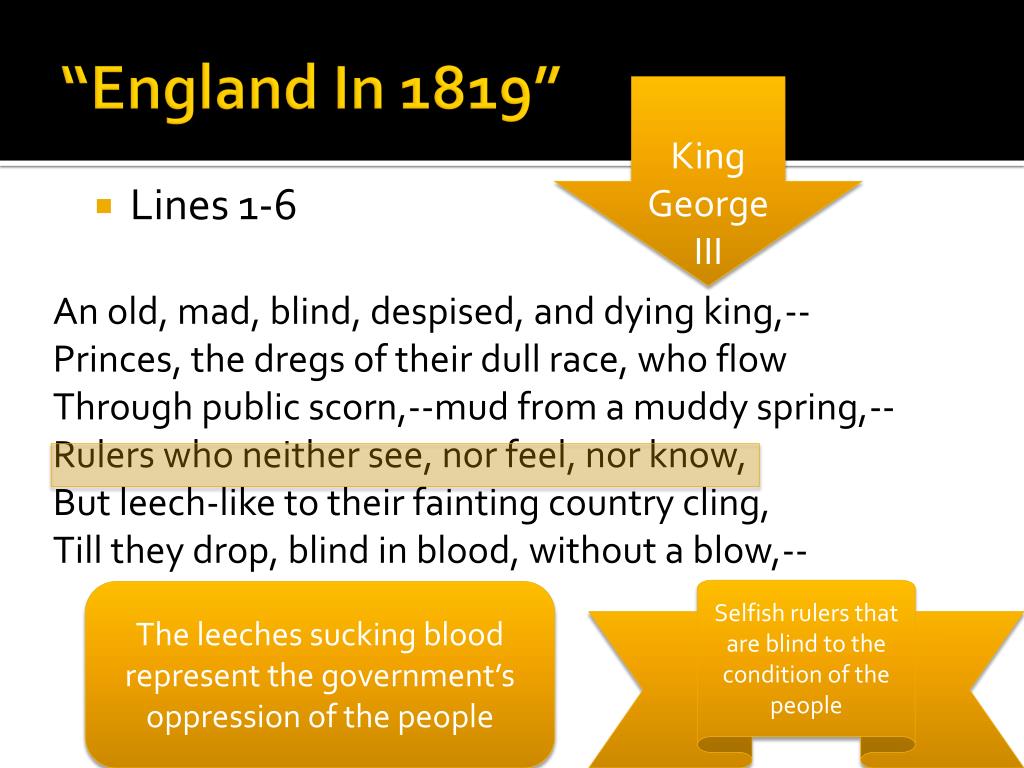
PPT “England In 1819” Percy Bysshe Shelley PowerPoint Presentation
"England in 1819", written by the Romantic poet Percy Bysshe Shelley, examines the state of England during the reign of King George III. The speaker's critical observations as he describes his world comments on the corruption and despair he observed in the country. "England in 1819" breakdown Lines 1-3

England in 1819 The Politics of Literary Culture and the Case of
England in 1819 follows the standard 14-line structure of a sonnet. It does not follow a traditional Petrarchan rhyme scheme but Shelley's use of iambic pentameter and other markers makes it feel very close to one.

England in 1819, by Percy Bysshe Shelley (1839) YouTube
Poet Bio. Born into a wealthy family in Sussex, England, Percy Bysshe Shelley was expelled from Oxford for writing The Necessity of Atheism. His radical lifestyle at times detracted from the appreciation of his work. He called poets "the unacknowledged legislators of the world.". In Shelley's short life — he drowned while sailing at age.
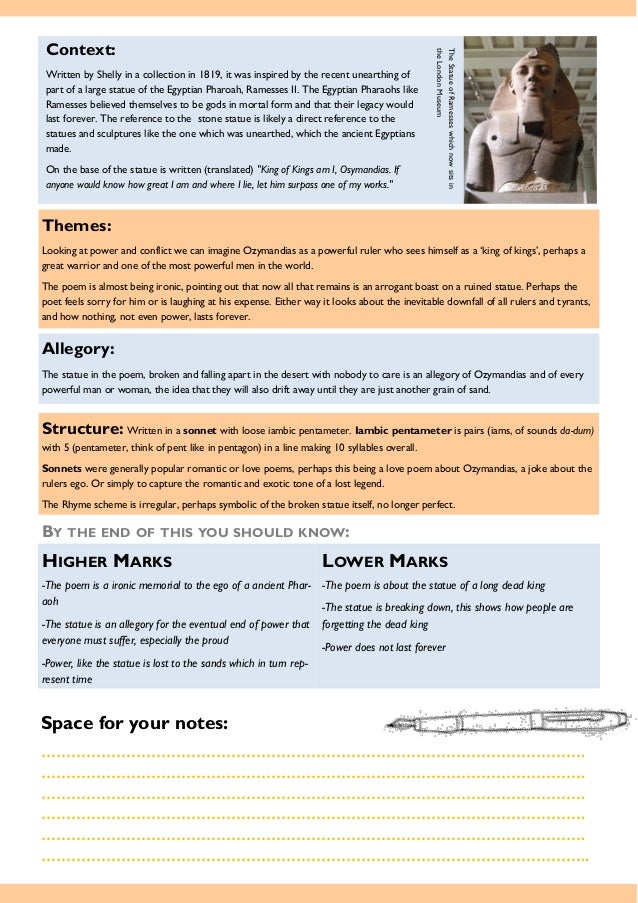
👍 England in 1819 analysis. Percy Shelley Poems “England in 1819
" England in 1819 " is a political sonnet by the English Romantic poet Percy Bysshe Shelley which reflects his liberal ideals. [1] Background The poem was composed in 1819, but it was not published until 1839 in the four-volume The Poetical Works of Percy Bysshe Shelley (London: Edward Moxon) edited by Mary Shelley.

Poem of the week England in 1819 Poetry The Guardian
England in 1819 Percy Bysshe Shelley An old, mad, blind, despised, and dying King; Princes, the dregs of their dull race, who flow Through public scorn, — mud from a muddy spring; Rulers who neither see nor feel nor know, But leechlike to their fainting country cling Till they drop, blind in blood, without a blow.